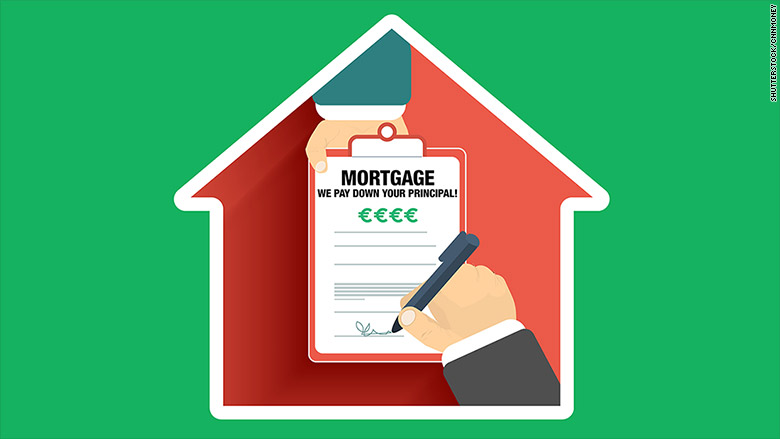
Up is down, black is white.
Or at least that's what it feels like in Europe, where at least one bank is paying some customers who borrow from it because interest rates have turned negative.
The European Central Bank has slashed official rates to record lows, and is pumping billions of euros into the economy to boost growth and inflation.
That has forced rates on some mortgage products far enough below zero to create a big headache for the banks: Do they now owe their borrowers?
"We are in uncharted waters," said Luca Bertalot, secretary general of the European Mortgage Federation. "Monetary policy is changing the funding landscape in Europe completely."
Here's how it works. Mortgage interest in Europe is often pegged to interbank lending rates known as Libor or Euribor. Short-term rates on a Swiss franc version of Libor are now approaching minus 1.0%.
Spain's Bankinter, which sold mortgages pegged to Swiss Libor, told CNN it couldn't pay interest on a loan (go figure!) so instead reduced the principal for some of its customers.
Bankinter's policy was first reported by The Wall Street Journal earlier this month.
Related: Junk bonds: The next financial crisis?
With no shift in ECB policy likely for some time, the banking industry is worried about how things will pan out. Bertalot said mortgage lenders were talking to the ECB and national central banks about how to deal with the challenge.
"There are no clear guidelines on how to move forward," he said.
Related: Fed rate hike: Here's what matters
The Bank of Spain told CNN it has not issued any official guidance to banks on how to adjust lending practices to the negative interest rate environment. The Bank of Portugal said in March that lenders should take "precautionary measures."
Related: Bonds are much riskier that you think
Negative interest rates have created anomalies elsewhere in Europe.
Germany issued its first 5-year bond with a negative yield in February, meaning investors are prepared to make a small loss buying super secure government debt. In the same month, a small Danish bank said it would charge customers 0.5% interest on their deposits from March. So for every $100 they deposit, the bank takes 50 cents.
This odd phenomenon is showing up in corporate bond markets as well. The yield on Nestle's corporate debt went negative earlier this year.
- CNN's Isa Soares and Nina Dos Santos contributed to this report.


